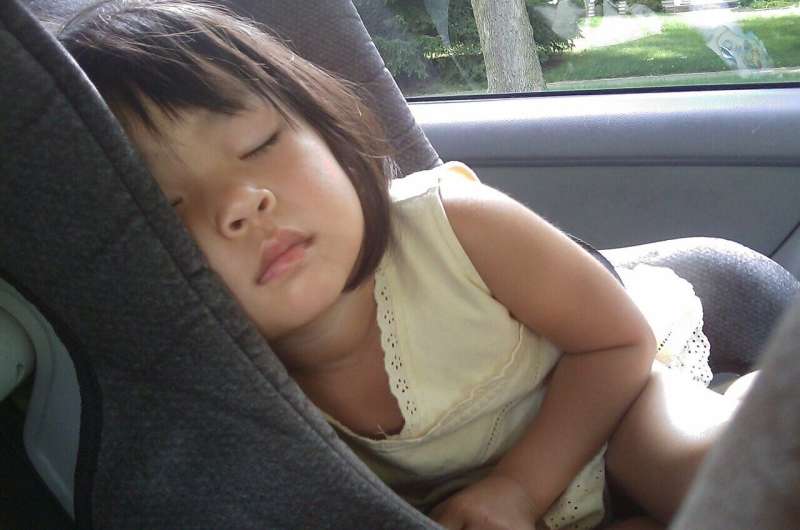This article has been reviewed according to Science X's editorial process and policies. Editors have highlighted the following attributes while ensuring the content's credibility:
fact-checked
proofread
What nap times reveal about your child's brain development

Infants who nap a lot have smaller vocabularies and poorer cognitive skills—according to new research from the University of East Anglia.
Parents the world over are prone to worry about their children getting either too little or too much sleep.
But a new study accepted for publication in JCPP Advances reveals that some children are more efficient at consolidating information during sleep, so they nap less frequently.
Meanwhile others, usually those with fewer words and poorer cognitive skills, need to nap more frequently.
The research team say that reducing naps for these children will not improve brain development, and that they should be allowed to nap as frequently and for as long as they need.
Lead researcher Dr. Teodora Gliga said, "There is a lot of parental anxiety around sleep. Parents worry that their kids don't nap as much as expected for their age—or nap too frequently and for too long.
"But our research shows that how frequently a child naps reflects their individual cognitive need. Some are more efficient at consolidating information during sleep, so they nap less frequently.
"Children with smaller vocabularies or a lower score in a measure of executive function, nap more frequently.
"Young children will naturally nap for as long as they need and they should be allowed to do just that," she added.
The research team studied 463 infants aged between eight months and three years during lockdown in 2020.
Parents were surveyed about their children's sleep patterns, their ability to focus on a task, keep information in their memory, and the number of words that they understood and could say.
They also asked parents about their socio-economic status—including their postcode, income, and education—and about the amount of screen time and outdoors activities their child engaged in.
Dr. Gliga said, "Lockdown gave us an opportunity to study children's intrinsic sleep needs because when children are in childcare, they rarely nap as much as they need to.
"Because nurseries were closed, it meant less disturbance to the children's natural sleep patterns. None of the children taking part were attending day care.
"What we found is that the structure of daytime sleep is an indicator of cognitive development.
"Infants with more frequent but shorter naps than expected for their age had smaller vocabularies, and worse cognitive function.
"We also found that this negative association between vocabulary and frequency of naps was stronger in older children," she added.
"While the majority of parents told us that their child's sleep was unaffected by lockdown, parents from lower socio-economic backgrounds were more likely to report a worsening in sleep.
"Screen time increased during lockdown and outdoor activities decreased but these did not explain differences in children's sleep.
"Previous work suggested that caregivers should encourage frequent naps, in pre-school children.
"Our findings suggest that children have different sleep needs—some children may drop naps earlier because they don't need them anymore. Others may still need to nap past three years of age.
"In the U.K., preschools enrolling 3 to 5-year-olds have no provisions for napping. Caregivers should use a child's mental age and not chronological age to ascertain a child's sleep needs," she added.
More information: More frequent naps are associated with lower cognitive development in a cohort of eight- to 38- month-old children, during the COVID-19 pandemic, JCPP Advances (2023). wrap.warwick.ac.uk/177343/
Teodora Gliga et al, More frequent naps are associated with lower cognitive development in a cohort of 8–38‐month‐old children, during the Covid‐19 pandemic, JCPP Advances (2023). DOI: 10.1002/jcv2.12190


















